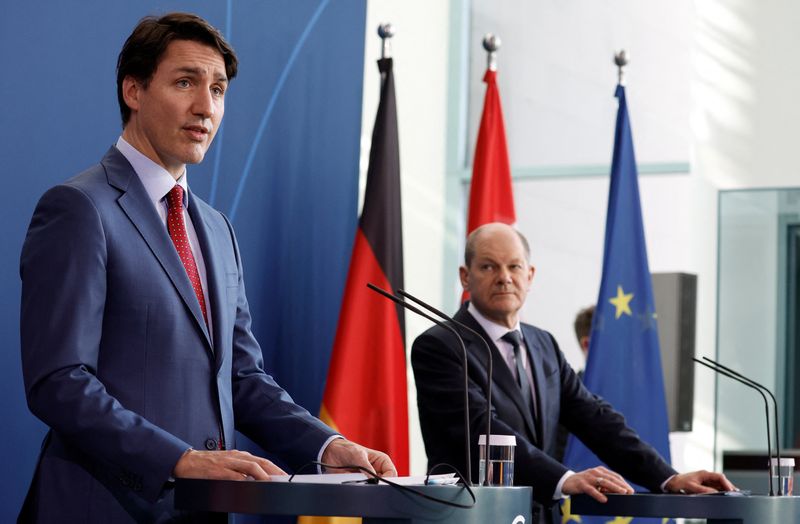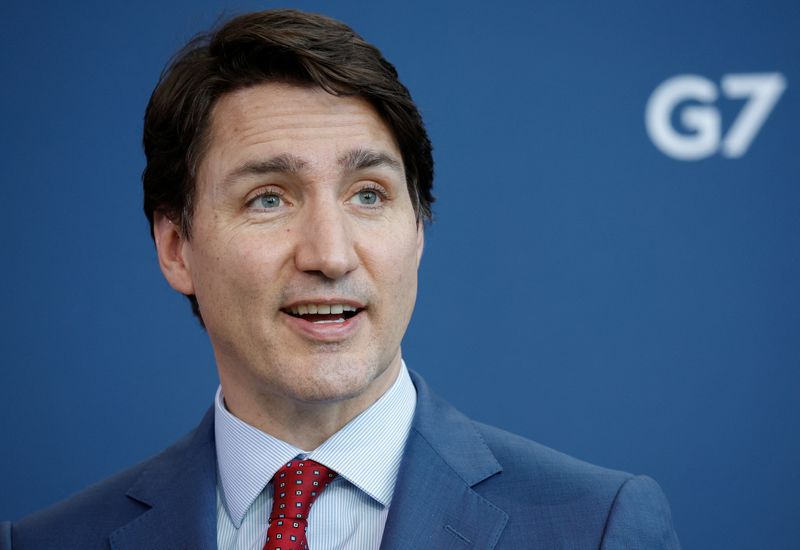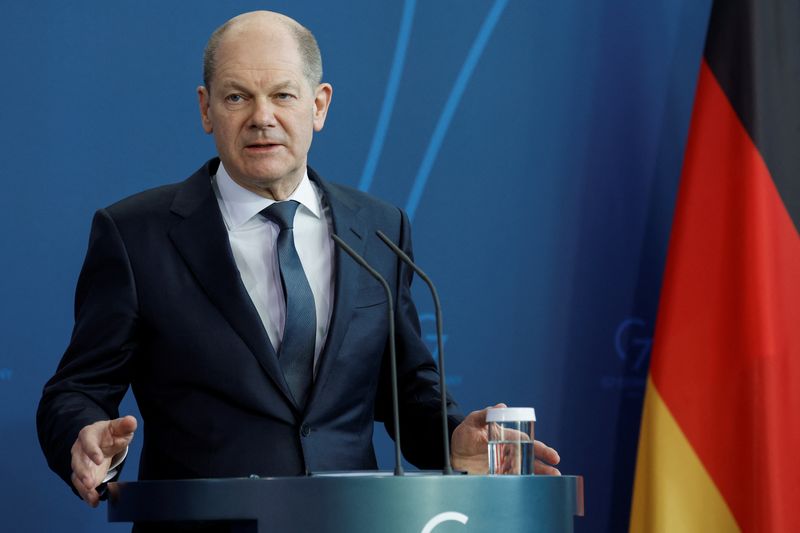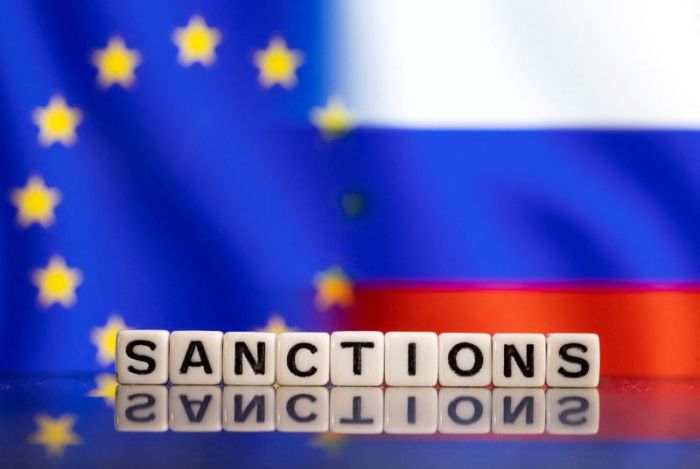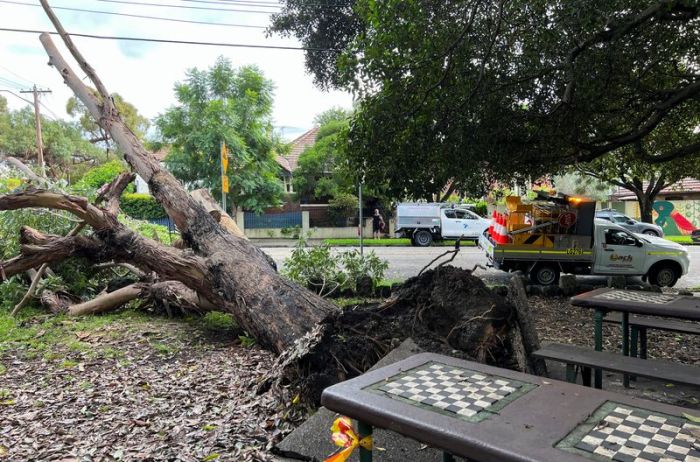BERLIN (Reuters) -Germany will certainly not send warplanes to Ukraine, Chancellor Olaf Scholz said on Wednesday, after the United States rejected an offer by Poland to transfer its Russian-made MiG-29 jets to a U.S. base in Germany as a way of helping Ukrainian forces.
Speaking at a joint news conference with Canadian Prime Minister Justin Trudeau, Scholz said Germany had provided all kinds of defence equipment and had sent weapons.
“But it is also true that we have to consider very carefully what we do concretely, and definitely warplanes are not part of that,” said Scholz.
Ukraine has pleaded with Western nations to provide it with fighter jets to counter a Russian invasion that has forced more than two million refugees to flee the country.
Poland said on Tuesday it was ready to transfer all its MIG-29 jets to Ramstein Air Base in Germany and put them at the disposal of the United States and urged other NATO members to do the same. The Pentagon rejected the offer as not “tenable”, while Russia said it would be dangerous.
Trudeau said his country was sending an extra C$50 million ($39 million) worth of equipment to Ukraine, including cameras used in drones.
“We want to de-escalate the conflict,” Trudeau added.
Scholz and Trudeau said they had discussed energy cooperation, both in light of climate targets and the Ukraine crisis, which has highlighted Europe’s, and particularly Germany’s, dependence on oil and gas imports from Russia.
Canada is the world’s fourth-largest oil producer and sixth-largest natural gas producer.
Scholz said Germany must diversify raw materials used by industry.
Asked if Germany was categorically opposed to a ban on Russian energy imports, Scholz said he had for several months been working on reducing its dependency on fossil fuel imports.
($1 = 1.2821 Canadian dollars)
(Reporting by Thomas Escritt, Ismael Shakil and Julie R. Gordon Writing by Madeline ChambersEditing by Gareth Jones)

